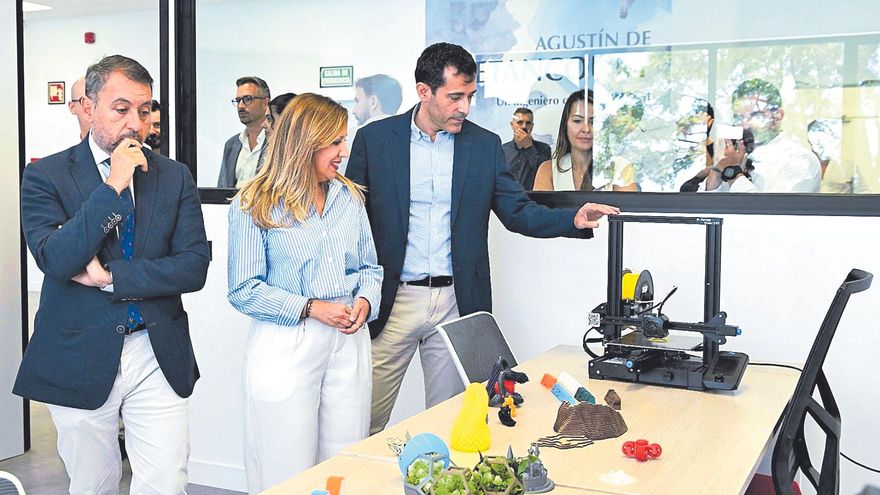
The Scientific and Technological Park of Tenerife (PCTT), managed by the Insular Cabildo, has experienced notable growth, doubling the number of companies in two years and reaching 54 active entities. This innovative ecosystem generates over 500 skilled jobs and expands with six high occupancy technological enclaves, such as the new space in Barranco Grande, which is already operating at 75% capacity.
Tenerife is consolidating itself as a benchmark in innovation, entrepreneurship, and technology, thanks to the sustained growth of the PCTT. The 54 companies operate in strategic sectors such as aerospace, engineering, medical technology, audiovisual, and artificial intelligence, fostering stable and specialised employment with a growing economic impact on the island. The president of the Cabildo, Rosa Dávila, highlighted that the Park is a “genuine lever for transformation for Tenerife,” emphasising the doubling of companies and qualified jobs in just two years, which marks the island’s economic future.
Six Enclaves for Future Companies
The PCTT has six active enclaves to meet the growing demand for specialised spaces: Innovaparq ULL, Las Mantecas, Dársena, ITER, Cuevas Blancas, and the new enclave in Barranco Grande in Santa Cruz. The latter, with 3,700 square metres, has achieved 75% occupancy in just a month, already hosting a dozen technological and creative companies. This swift uptake confirms the need to expand innovation infrastructures. Dávila emphasised that “real opportunities for local talent” are being created, as Tenerife offers stability, connectivity, and a safe environment to develop ideas and consolidate high value-added companies.
Growing and Consolidating Companies
In recent months, 34 new companies have joined the PCTT, 27 of them in the first half of the year, demonstrating stable growth. Established companies such as ARQUIMEA (aerospace and healthcare technology) and Wooptix (computational optics) have expanded their presence, showcasing the ecosystem’s ability to attract, retain, and scale projects. The president emphasised that the Park not only attracts talent and investment but also “fosters loyalty among companies that decide to grow and stay on the island.”
The Aerospace Industry Gains Ground in Tenerife
A significant advancement is the incorporation of four companies from the aerospace sector. This initiative strengthens the Cabildo’s diversification strategy, positioning Tenerife as a competitive territory and a national and international benchmark in emerging industries. Insular Councillor for Innovation, Juan José Martínez, stated that “the arrival of companies in the space sector, alongside the expansion of local technology firms, shows that the PCTT ecosystem is solid and has a forward-looking vision.” In his view, the Cabildo’s strategy works by combining training, suitable spaces, support, and partnerships with research centres.
Startup Acceleration and Talent Development
The Park has also intensified its dynamism. So far this year, ten startups have completed acceleration programmes, receiving guidance to scale their businesses. In addition, 164 individuals have participated in entrepreneurial training, with over 1,000 attendees at events, workshops, networking meetings, and hackathons. These figures demonstrate the increasing interest in technological innovation and entrepreneurship in Tenerife society. Martínez highlighted that the Park is a “living environment that connects knowledge, talent, and opportunity. This is why more and more entrepreneurs are approaching to start their projects here.”
Cutting-Edge Infrastructure
Tenerife boasts unique resources that enhance this dynamic, such as the supercomputers Teide and Anaga, the D-ALiX Data Centre, and international connectivity via submarine cable, which place the island in optimal conditions for global competition. This is complemented by cooperation with the University of La Laguna and local research centres, which facilitate knowledge transfer to the business fabric. Rosa Dávila concluded that all of this enables a “change in the productive model,” advancing towards a smarter economy, less dependent on traditional sectors and with a clear vision for the future.















